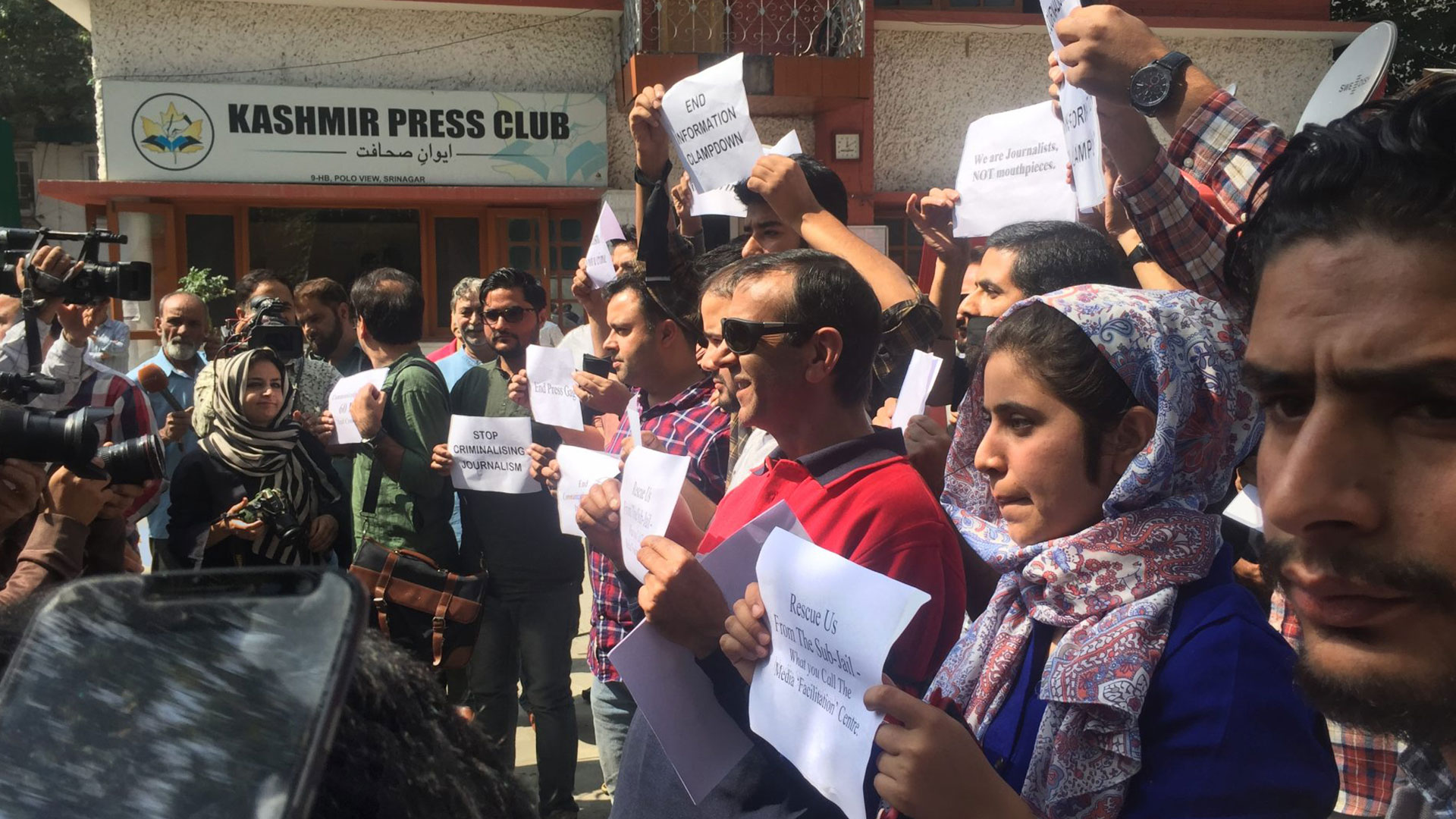In a press conference held on February 10 by the Kashmir Press Council (KPC), journalists spoke out against the intimidation and assault on media personnels by government agencies, since the abrogation of Article 370. Last year on August 5, the far-right Indian government scrapped this special article of the Indian constitution that had guaranteed autonomy for Jammu and Kashmir*. Since then, the region has been put under a military siege, with communication lines partially snapped.
Kashmiri journalists allege that they are being forced to promote government narratives and media freedom has been severely curtailed. They further noted that any attempt to exercise media freedom was being met with threats and even physical violence.
The meeting was called by the KPC along with 10 other journalist bodies following the summoning of two journalists from the Valley who were questioned for hours at the police’s counter-insurgency headquarters, Cargo.
“The harassment and questioning of journalists in Kashmir on flimsy grounds by the J&K Police for their work is in fact a damning verdict on the appalling condition in which the media is operating,” the KPC said a statement.
On August 14 last year, a journalist working for local newspaper Greater Kashmir, Irfan Amind Malik, was picked up from his residence in south Kashmir’s Tral. Similarly, another journalist working with The Hindu newspaper, Peerzada Ashiq, was summoned by the police for questioning inside Srinagar’s Kothibagh police station on September 1. He was pressured to reveal a source which he had quoted in his report.
The Council’s statement also noted that a number of journalists have been assaulted in the last six months by the state forces. In November, Zubair Dar, a journalist associated with Voice of America, and freelance journalist Muzamil Mattoo were beaten up in Srinagar’s downtown area. Later, in January, two more journalists, Anees Zargar and Azaan Javaid, were roughed up in broad daylight when they tried to take a video of a minor being detained by police officials in Srinagar’s Hawal area.
On November 30, two senior journalists, Basharat Masood and Hakeem Irfan, working with the Indian Express and the Economic Times, respectively, were grilled by police officials for their reporting. They too were asked to reveal their sources and interrogated as to how they managed to collect the documents required for their articles. Recently, on February 8, Naseer Ganaie, a senior journalist based in Srinagar, was summoned by the counter insurgency center, where he was questioned for reporting about a group that has been banned by the government.
*On August 05, 2019, along with the abrogation of Article 370, the erstwhile state of Jammu and Kashmir was bifurcated into two union territories- Jammu and Kashmir, and Ladakh





